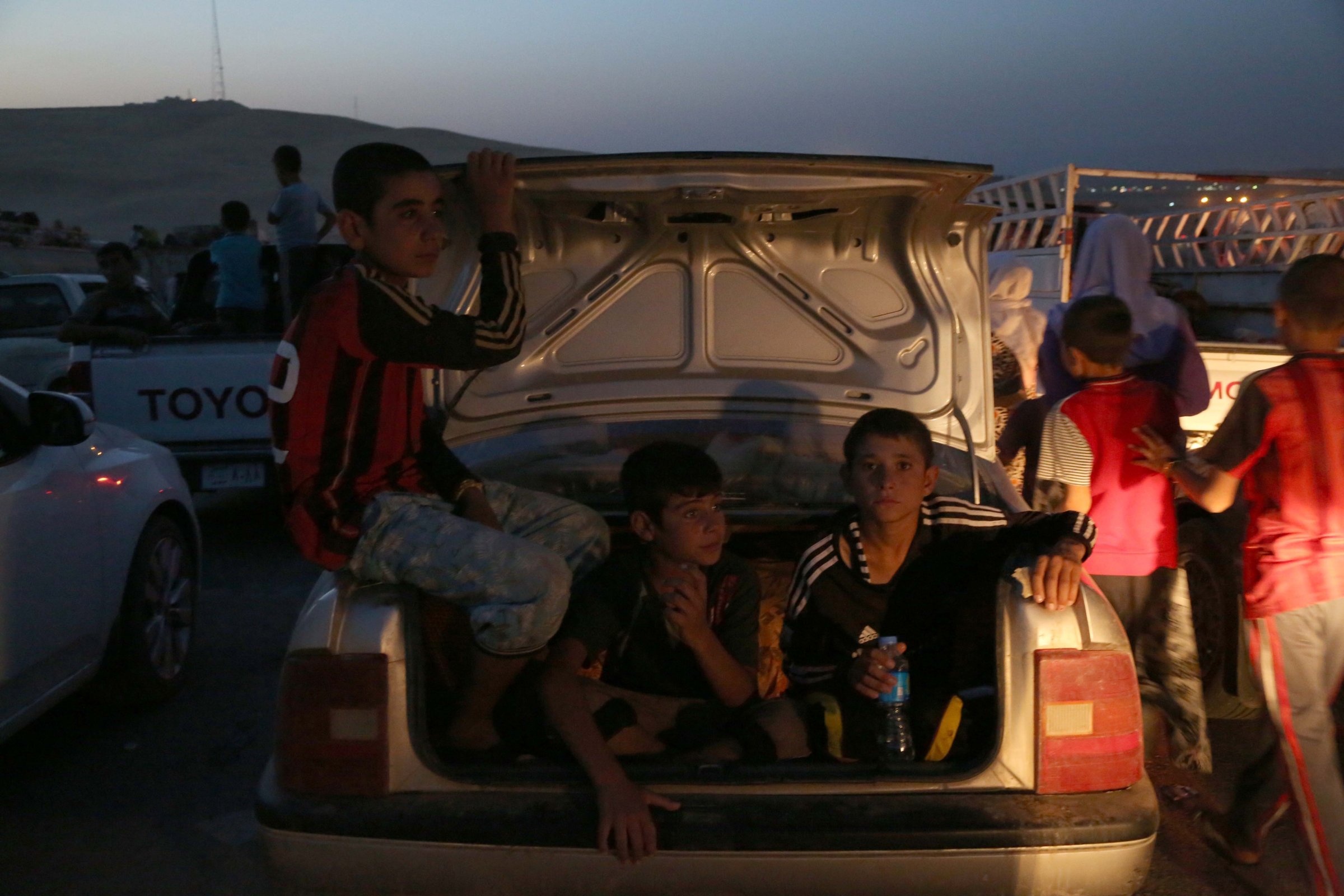
With the world’s focus on the conflict in Gaza, little international attention is being paid to an appalling humanitarian crisis unfolding in Iraq.
In the country’s far northwest, tens of thousands of people fleeing the Sunni extremist group Islamic State have been trapped on a mountain for days without water or other supplies. The refugees, primarily from the country’s Yazidi religious sect, have begun to die from dehydration and exposure, with no relief in sight.
They face an excruciating dilemma — attempt to flee and risk being captured and killed by insurgents, or remain on Mount Sinjar in the hope that aid will somehow get through.
“A humanitarian tragedy is unfolding in Sinjar,” said Nickolay Mladenov, special representative of the United Nations Secretary-General for Iraq, in a statement released earlier this week. “The Government of Iraq and the Kurdistan Regional Government should urgently restore their security cooperation in dealing with the crisis.”
Humanitarian workers say there is no way to deliver supplies to the area outside of intermittent airdrops being conducted by the Iraqi Air Force.
“It’s not possible to get to them by road, obviously because ISIS controls the access roads, so nobody can go, they cannot leave,” Donatella Rovera, Amnesty International’s senior crisis response adviser, told TIME by phone from northern Iraq on Wednesday.
“It’s going to take a few more days before things coalesce into a more coordinated response.”
On Tuesday, the United Nations Children’s Fund (UNICEF) reported that at least 40 children holed up on the mountain had died as result of dehydration.
“These children from the Yazidi minority died as a direct consequence of violence, displacement and dehydration over the past two days,” said Marzio Babille, a UNICEF representative, in a statement. UNICEF estimates that there are approximately 25,000 children still stranded in and around Sinjar.
Islamic State, which is notorious for its hatred of any group that does not abide by its fundamentalist interpretation of Sunni Islam, is particularly harsh on the Yazidi, who follow an ancient religion with resemblances to Zoroastrianism.
Reports and photos posted by Islamic State earlier appeared to show summary executions of Yazidi men.
The insurgents have “been behaving in a very brutal way with everybody,” says Rovera. “With the Yazidi, it’s worse, simply because the Yazidis’ religion [is] considered devil worship.”
Earlier this summer, Islamic State, along with a smattering of Sunni militias, launched a blitzkrieg throughout northern Iraq capturing large swaths of territory along both the Tigris and Euphrates rivers.
Since then, the militant group has enforced its brand of draconian rule over their territory — targeting religious minorities and destroying troves of prized cultural and religious artifacts deemed heretical.
On Sunday, at least 200,000 people fled the Sinjar region as militants loyal to Islamic State routed Kurdish forces.
Thousands of refugees have made it to the Kurdish Autonomous Region in the far north of the country, but supplies are being stretched by the day as the displaced crowd into refugee camps, cramped apartments and mosques.
In the absence of strong military support from Baghdad, Kurdish militia fighters, including troops from as far away as Turkey and Syria, launched a massive counteroffensive on Tuesday in attempt to dislodge the heavily armed ISIS fighters from the northwest.
More Must-Reads from TIME
- Cybersecurity Experts Are Sounding the Alarm on DOGE
- Meet the 2025 Women of the Year
- The Harsh Truth About Disability Inclusion
- Why Do More Young Adults Have Cancer?
- Colman Domingo Leads With Radical Love
- How to Get Better at Doing Things Alone
- Michelle Zauner Stares Down the Darkness
Contact us at letters@time.com